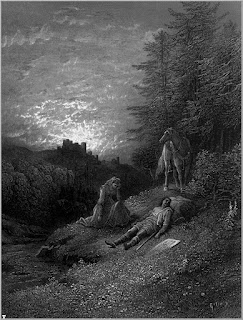Core Rules deep dive: damages, injuries and... death!

In this deep dive some insights about how a character can suffer damages, what is the kind of injuries from damage and what is the game mechanic which rule the death of a character. Let’s start from the first topic: damage! A damage is anything affecting negatively a character, be it caused by either a weapon or a different cause like a poison or magic. In VI·VIII·X any damage is defined as a negative impact on a character’s stats. When a character suffers a damage, this means that one or more stats decrease and the character is in the position to act with a reduced score in that stat from the following turn; as a consequence the character gains the state of ‘injured’. Now, let’s better focus on what an injury is in the VI·VIII·X game. According to the damage suffered, the GM defines what are the affected stats of the character (this happens only when it is not already defined in a rule, needless to say). The damage is exactly the same amount of the decrease in the related stats, the r...



